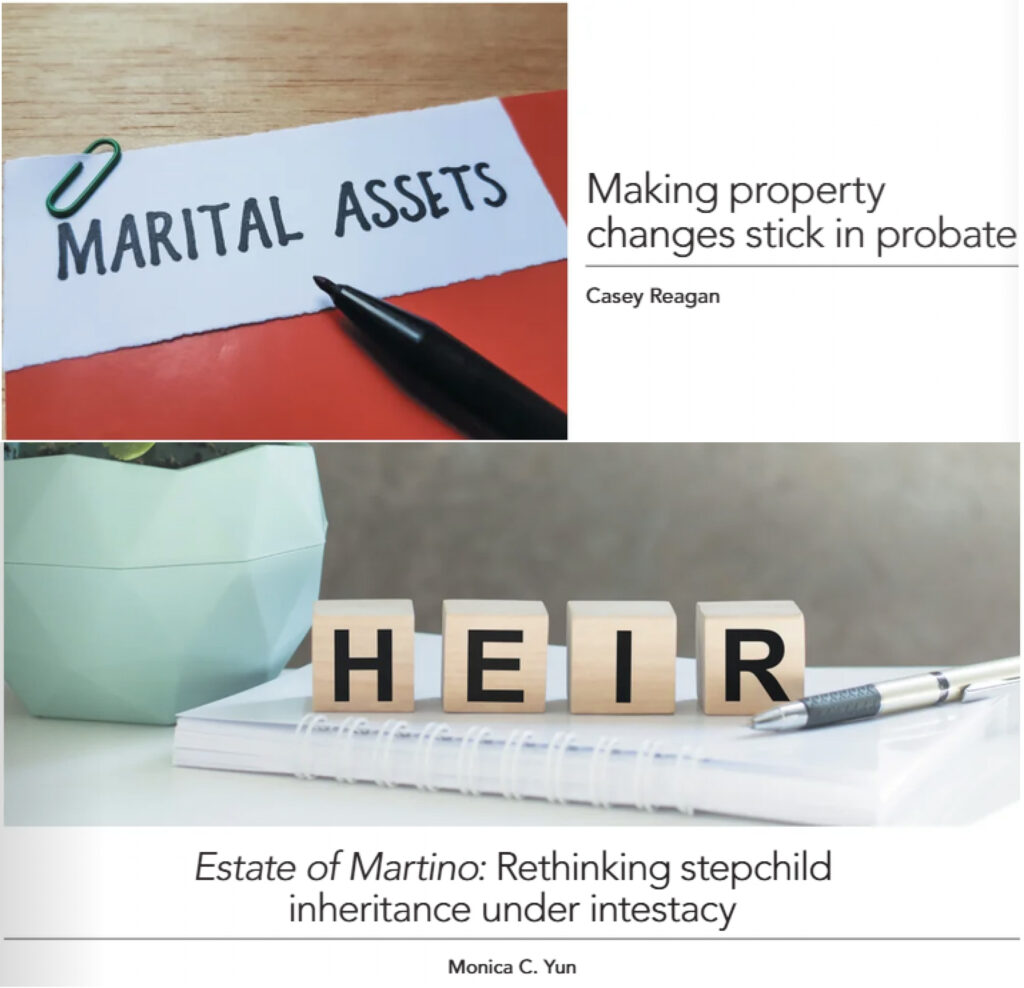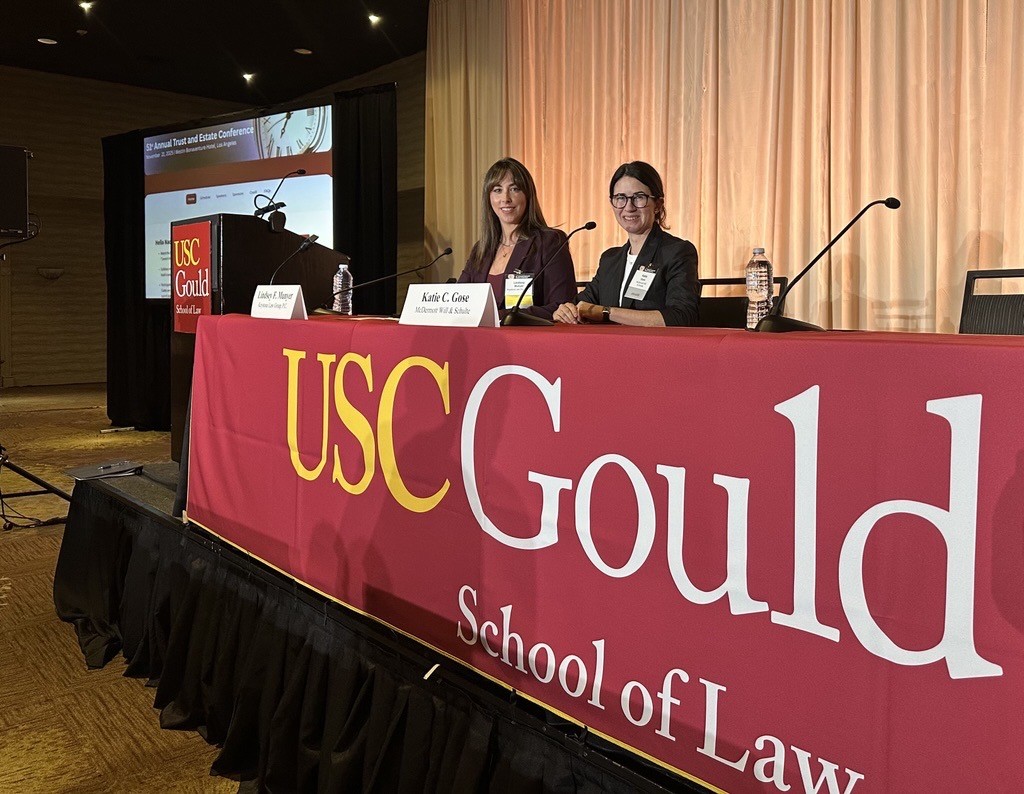In trust disputes, it is not uncommon for a deceased settlor’s beneficiaries—who are, more often than not, family members—to be pitted against one another in a protracted legal battle concerning the validity of the living trust or the [mis]management of trust assets by the trustee. Before diving head-first into litigation, each trust beneficiary will perform their own individual cost-benefit analysis. Some beneficiaries may be chomping at the bit to litigate for personal, financial, or other reasons. Other beneficiaries may be averse to the time, cost, or risk associated with litigation and may instead opt not to participate in litigation believing that they can get a “free ride”—i.e., sit idly by while their co-beneficiaries pay to litigate the joint dispute, while still reaping the benefits of successful litigation. But the Second District Court of Appeals’ 2019 holding in Smith v. Szeyller[1], should serve as a warning to all would-be beneficiary “freeloaders” of the significant risks associated with such inaction.
In Smith, a trust beneficiary, Don, engaged in litigation concerning the management of trust assets and trust accountings filed by the successor trustees, Don’s sister JoAnn and JoAnn’s husband, Edward, following the death of the trust’s settlors.[2] Ultimately, the petitions proceeded to a trial; however, some of the beneficiaries, including Don’s and JoAnn’s sister, Donna, elected not to participate in the litigation or trial, even though they were properly noticed of these proceedings.[3] Before the trial concluded, the participating parties entered into a settlement agreement on the record before the Court, which resolved not only the issues before the Court in the pending litigation, but additional issues that were not expressly put before the Court in any of the prior pleadings—namely, the approval of revised trust accountings filed with the Court mid-trial, and the payment of the Petitioner’s attorney’s fees and costs from the Trust as a whole, in the amount of $721,258.28.[4] Thereafter, Donna (through her conservator)—who was not pleased at the prospect of having to pay a portion of Don’s legal fees out of her proportionate share of the Trust—objected in post-trial motions, claiming that she was denied due process because she was not given the opportunity to participate in settlement discussions, that Don did not properly request the attorneys’ fee award in his filed pleadings, and that Donna was not provided with the required 30-days’ notice or the opportunity to object to the revised accountings, or the opportunity to present evidence that the terms of the settlement were unfair. Donna’s post-trial motions were denied, and she appealed.[5]
On appeal, the Appellate Court agreed with the trial court, ruling as follows:
“The court had jurisdiction to resolve the dispute between Don, JoAnn, and Edward over their accountings for the period from July 2009 through April 2015 because their petitions and objections framed that dispute. . . The matter was squarely before the court at the evidentiary hearing of which Donna had notice. . . Donna chose not to participate in the trial and cannot now second-guess the resolution of Don’s objections. . . Donna does not dispute that she received notice of every pleading and the evidentiary hearing. Due process did not require the parties to use other procedures, such as a motion to enforce a settlement or a petition for approval of a settlement or a new accounting. . . such procedures were unnecessary because the dispute was before the court on properly noticed petitions and objections.”[6]
The Appellate Court further found that the non-participating beneficiary (Donna) had no right to second-guess the Court’s resolution of the attorney’s fee claim—even though the fee award was not supported by billing records—because she had failed to participate in the proceeding: “Only JoAnn and Edward objected to the petitions and they withdrew their objections by settling their claims mid-trial, before Don was required to prove the amount of fees reasonably incurred. . . . Had Donna participated in the trial, she could have withheld consent to the settlement absent satisfactory proof of the amount claimed.”[7]
In so holding, the Appellate Court agreed that the “substantial benefit doctrine” justified this result:
“Trust beneficiaries must generally pay their own attorney’s fees incurred challenging a trustee’s conduct, even if they succeed. But under the substantial benefit exception, the trial court may exercise its ‘equitable discretion … [to] determine[ ] whether the interests of justice require those who received a benefit to contribute to the legal expenses of those who secured the benefit’. . . . [The substantial benefit doctrine] ‘permits the award of fees when the litigant, proceeding in a representative capacity, obtains a decision resulting in conferral of a ‘substantial benefit’ of a pecuniary or nonpecuniary nature. In such circumstances, the court, in the exercise of its equitable discretion, thereupon may decree that under dictates of justice those receiving the benefit should contribute to the costs of its production.’”[8]
Moreover, because the substantial benefit doctrine applies to both pecuniary and non-pecuniary benefits, the court opined that this doctrine has broad applicability to probate disputes specifically, which often involve requests for non-pecuniary benefits: “it plainly would apply, for example, … to an action to remove a trustee who has breached the trust or to a petition to compel an accounting.”[9]
***
The Smith holding should serve as a cautionary tale for freeloading beneficiaries—such beneficiaries should understand that by choosing not involve themselves in a trust litigation dispute, they may also be giving up their seat at the negotiating table, lose their power to object to a settlement, and even be forced to foot a portion of their litigating co-beneficiary’s legal bill.
By the same token, litigating parties who wish to cut off the ability of non-participating beneficiaries to object to a settlement agreement should also take heed. It behooves such parties to do everything they can to limit the ability of non-participating beneficiaries to passively benefit from litigation by, among other things, asking the court to exercise its discretion to set a deadline for the filing of objections to a pleading. Keystone recently settled a trust litigation proceeding and, as part of the settlement, distributed the entire beneficial interest of a non-participating beneficiary by employing just such a tactic.
Keystone’s case concerned a Petition for Instructions filed by the trustee of a trust regarding the possible ademption[10] of a specifically-devised trust property. The trust at issue left a valuable parcel of real estate to two specific beneficiaries (“Party A” and “Party B”), and the balance of the trust estate to Keystone’s clients (the “Residuary Beneficiaries”). Approximately three (3) weeks before the Settlor died unexpectedly, the Settlor sold the property and deposited the sales proceeds into a trust bank account that remained in his possession when he passed. In his Petition, the trustee took the position that the Settlor’s sale of the property constituted an ademption, and that the sales proceeds should be distributed to the Residuary Beneficiaries. Keystone, on behalf of the Residuary Beneficiaries, joined the Petition. Party A, one of the specific devisees, filed Objections to the Petition, alleging that specific gift was not adeemed, and should be distributed to Party A and Party B. Despite receiving notice of all of the pleadings, and the relief sought, Party B stayed silent and never responded to the Petition. Thereafter, Keystone asked the Court to exercise its discretion under California Rule of Court, Rule 7.801 to set a deadline for Party B to file his objections to the Petition or have his right to object deemed waived, a request the Court granted.[11] Despite receiving notice of this filing deadline, Party B still sat on the sidelines, never filed anything and never appeared in Court.
Eventually, the litigating parties agreed to attend a mediation and advised the Court of their intent on the record. At the mediation, which Party B received notice of but did not attend, the parties resolved their dispute by dividing the sales proceeds entirely between Party A and the Residuary Beneficiaries, leaving nothing for Party B. When the parties filed a petition to approve the settlement, Party B finally appeared and objected to the terms of the settlement, arguing that his due process rights had been violated and that the settlement would be inequitable. Keystone responded, arguing that through his inaction, Party B had waived his rights to participate in this litigation, and therefore could not object to the terms of the settlement, based in part on the Smith holding. The Court did not get the opportunity to weigh in, as Party B agreed to accept a nuisance value settlement to withdraw his objections.
All told, Party B arguably lost out on several hundred thousands of dollars’ worth of inheritance as a result of his decision to “freeload” on his co-beneficiary.
——–
[1] (2019) 31 Cal.App. 5th 450.
[2] Id. at 453. Don filed a verified petition, in which he questioned over $2 million dollars’ worth of expenditures, gambling, and gifts to JoAnn and Edward from Trust accounts during the last years of the settlor’s life. He asked the court to freeze the trust accounts and remove the trustees and order them to pay redress for breach of trust. He also sought an award of attorney’s fees to be paid from all three sub-trusts which, he alleged, would substantially benefit from his efforts.
[3] Id. at 456-57.
[4] Id. at 458-59.
[5] Id.
[6] Id. at 458.
[7] Id. at 462 (emphasis added.)
[8] Id. at 459-60 (internal citations omitted.)
[9] Id. at 460.
[10] “Ademption” refers to the failure of a gift of real or personal property to be distributed according to the provisions of a decedent’s estate plan, because the property no longer belongs to the decedent at the time of his or her death or because the property has been substantially changed.
[11] Cal. Rule of Court, Rule 7.108 provides, in pertinent part, that where a Court “continues a matter to allow a written objection or response to be made, and the responding or objecting party fails to serve and file a timely objection or response, the court may deem the objections or responses waived.”










